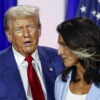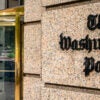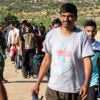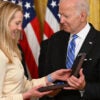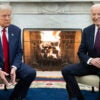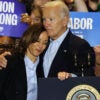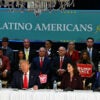A young Iranian pastor currently faces the death penalty for refusing to recant his Christian faith.
Pastor Yousef Nadarkhani was charged with apostasy for supposedly converting from Islam as a teenager and was sentenced to death last week when he refused to renounce his beliefs before the Iranian Supreme Court. The international community, including the U.S. State Department, has expressed outrage at Iran’s blatant disregard for human rights and continued oppression of religious freedom.
A husband and father of two young children, Nadarkhani has been imprisoned since October 2009, when he attempted to register his 400-member church with Iranian authorities. Although Iranian officials could not conclusively establish that the young pastor had ever been a practicing Muslim, the Iranian Supreme Court convicted Nadarkhani of apostasy merely because he has Muslim ancestry.
U.S. leaders have denounced Iran’s actions and called for greater respect for religious freedom from the country’s government. Calling religious freedom a “universal human right,” House Speaker John Boehner (R–OH) urged the Iranian government to “abandon this dark path” and release Nadarkhani without conditions.
Representative James Lankford (R–OH) likewise stated that Iran’s detainment of Nadarkhani “clearly shows that they devalue basic human liberty and faith in pursuit of unrelenting control of their country.” He continued: “It is a discriminatory belief that has led to the religious persecution of many Iranian citizens who are endowed with the unalienable right that all men and women around the world have to pursue a more fulfilling and joyous life through religious freedom.”
Secretary of State Hillary Clinton weighed in on the situation, saying the United States is “deeply concerned” about the religious persecution perpetuated by the Iranian regime: “The United States stands with the international community and all Iranians against the Iranian government’s hypocritical statements and actions, and we continue to call for a government that respects the human rights and freedom of all those living in Iran.”
The need is great for the international community to speak out against the serious religious oppression of the Iranian government and particularly the looming death of Nadarkhani. The profound importance of religious liberty to upholding other democratic freedoms, as evidenced in America’s own history, should be integrated into U.S. public diplomacy.
As Heritage’s Jennifer Marshall writes in a backgrounder entitled “Religious Liberty: An Idea Worth Sharing Through Public Diplomacy”:
The international freedom agenda should better integrate the ongoing work to promote religious liberty, the “first freedom.” … The vision of religious liberty needs to be robust. Condemning and curtailing religious persecution is a critical goal, but a more expansive agenda should seek to promote political conditions that consistently apply religious liberty tenets rooted in constitutional government.
International attention from both official government sources and private religious groups has a track record of successfully opposing state-sanctioned persecution of members of minority faiths. As Nina Shea, a commissioner on the U.S. Commission of International Religious Freedom, points out: “Not only were American hikers accused of spying for Israeli recently released, but 13 Iranian Jews convicted in 2000 of spying for Israel and facing the death penalty were all released by 2003—but only after voices had been raised in Washington and other Western capitals.”
The U.S. cannot defer to others to uphold human rights. The United Nations Human Rights Council, for instance, has a dismal record of denouncing human rights violations, including those in Iran. As Heritage’s Brett Schaefer writes:
China, Cuba, Iran, and North Korea have submitted false reports to the council, laughably affirming their commitment to fundamental human rights and freedoms. A majority of the council accepted these patently dishonest reports at face value and approved them.
A final decision on the death penalty is still pending before a lower Iranian court. The American Center for Law and Justice, which has been in constant contact with Nadarkhani’s attorney over the past week, suggests that the international community’s cries to release the young pastor may have begun to ring in the ears of the Iranian judges. This incident should remind the U.S. State Department and government leaders of the profound role America can play in advancing the cause of human liberty by staunchly defending religious liberty in public diplomacy.


